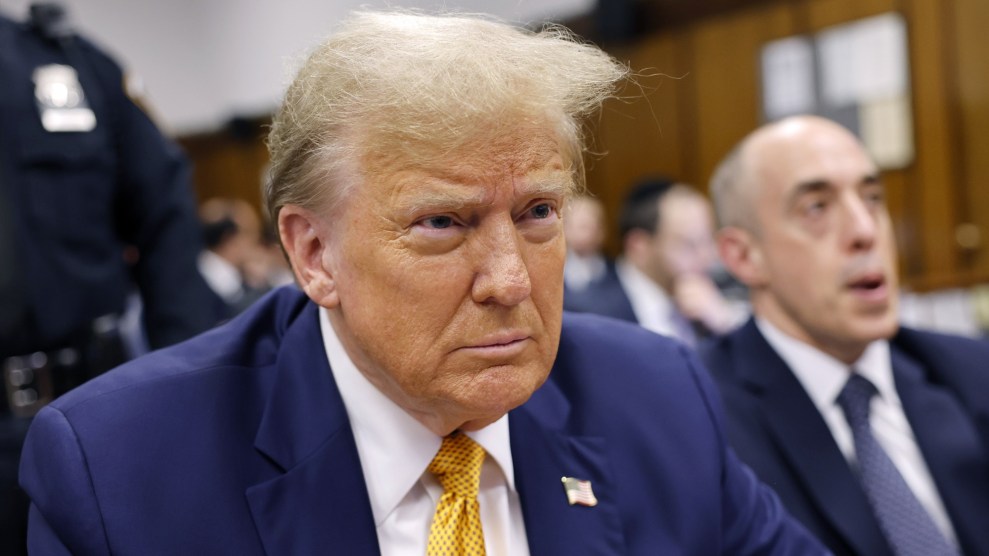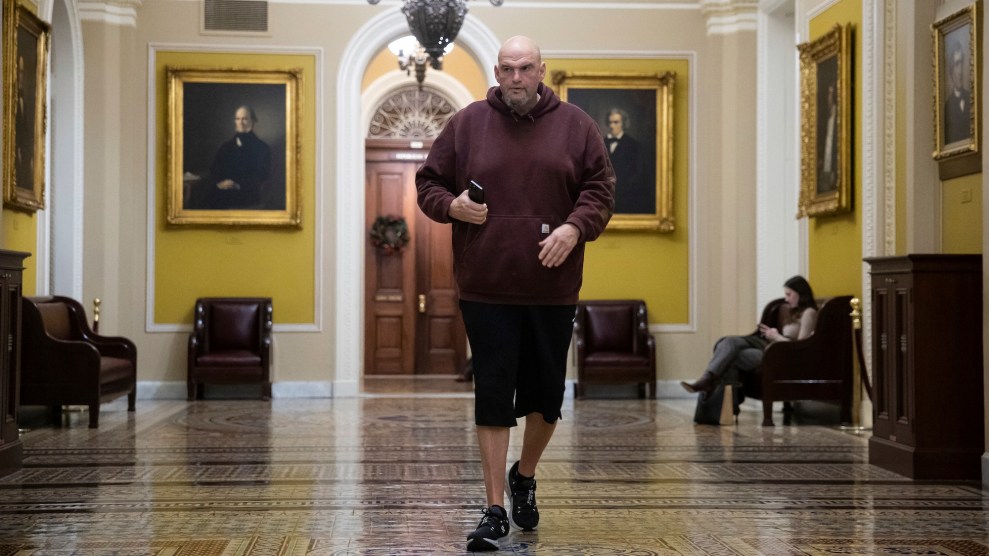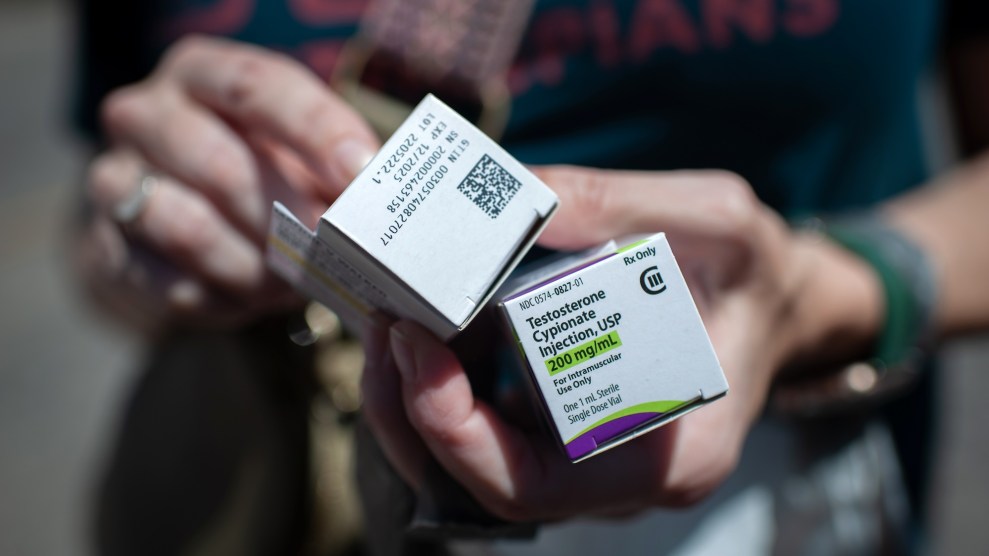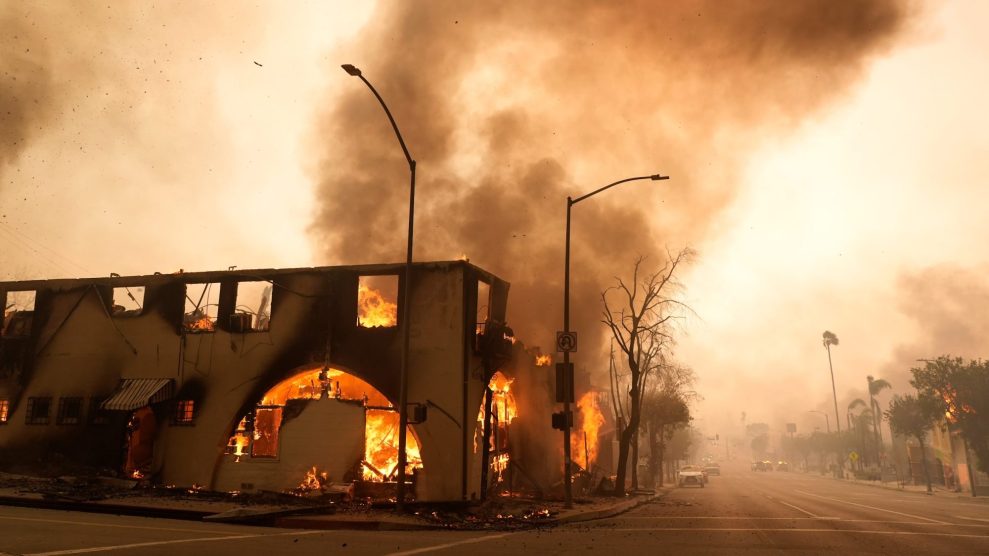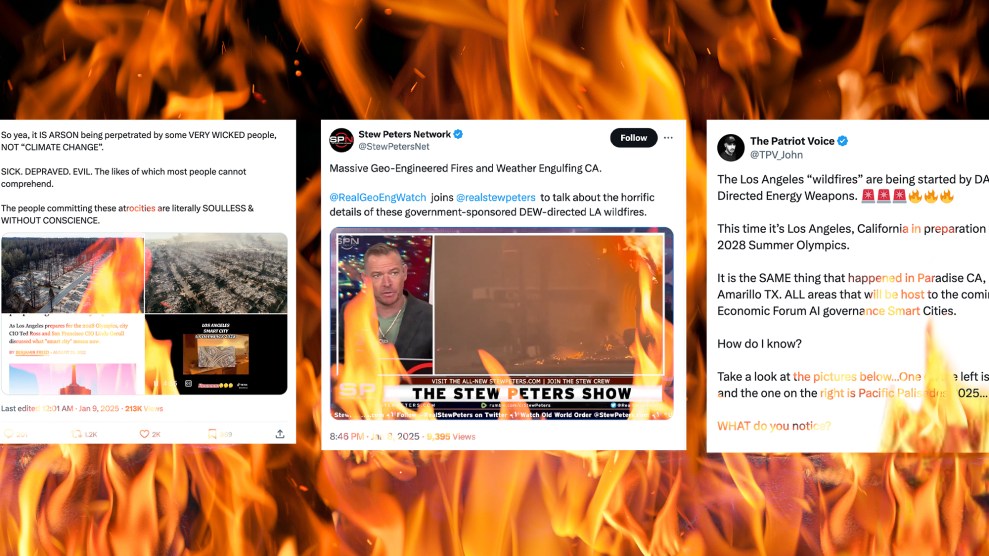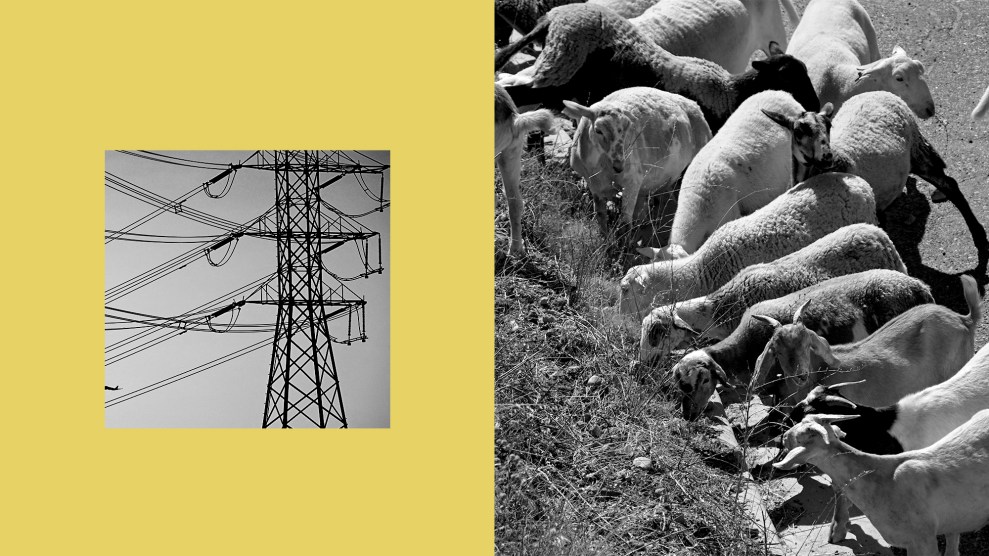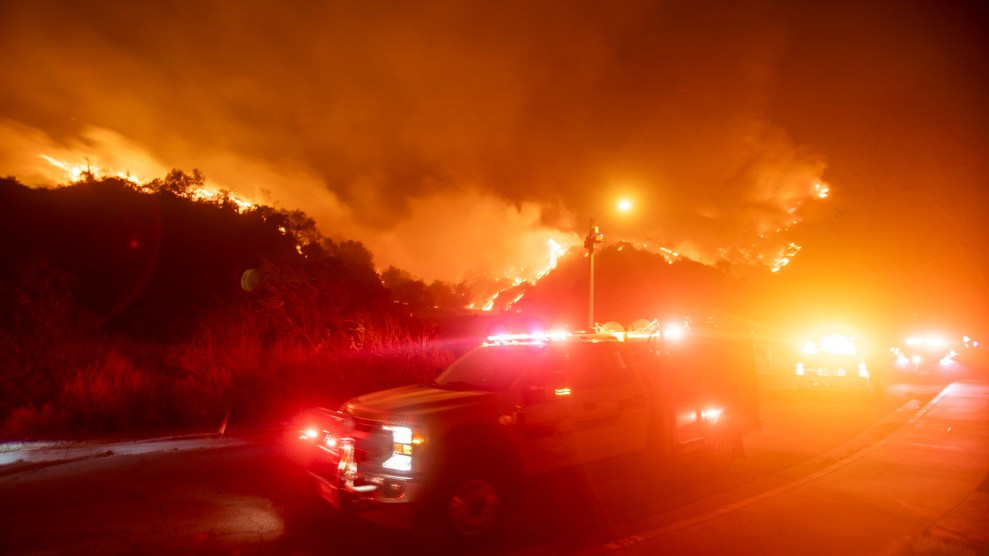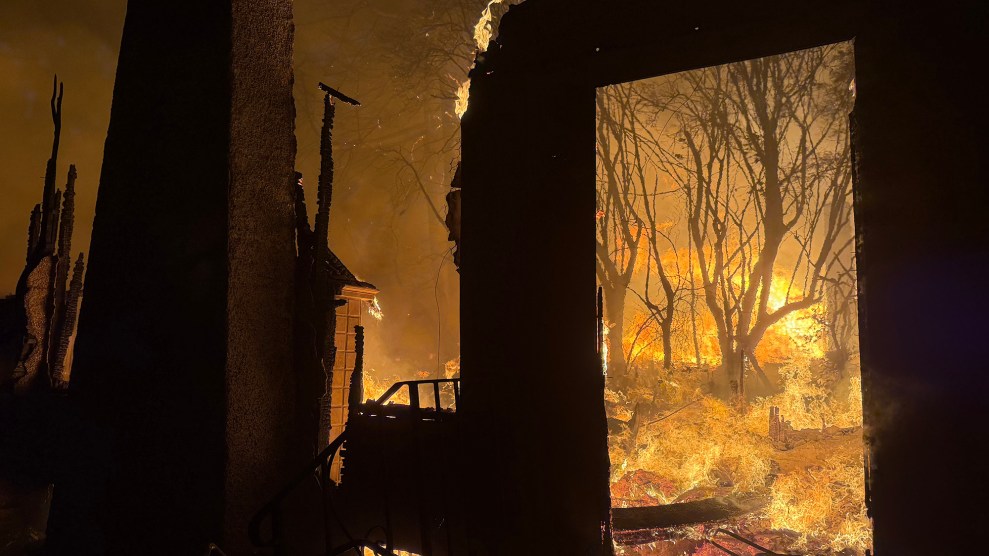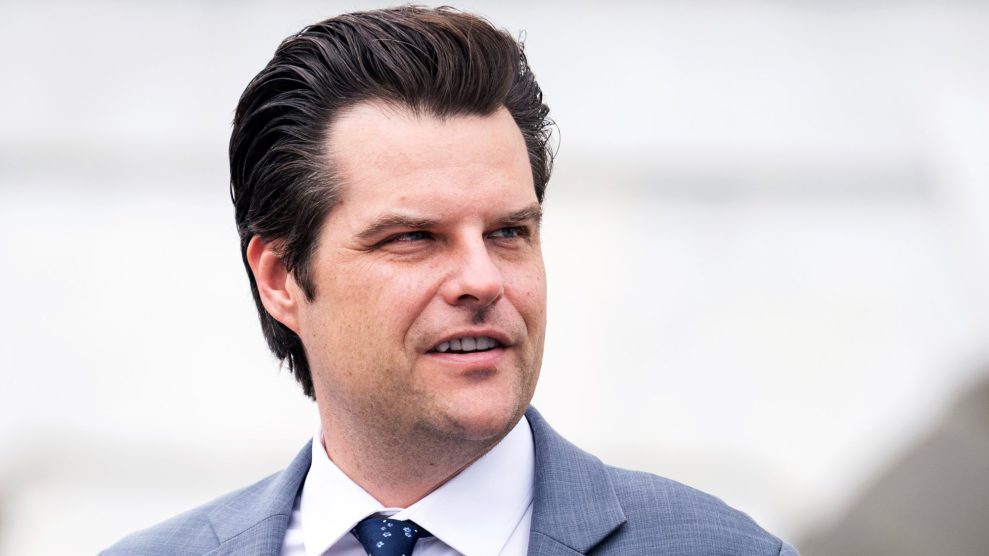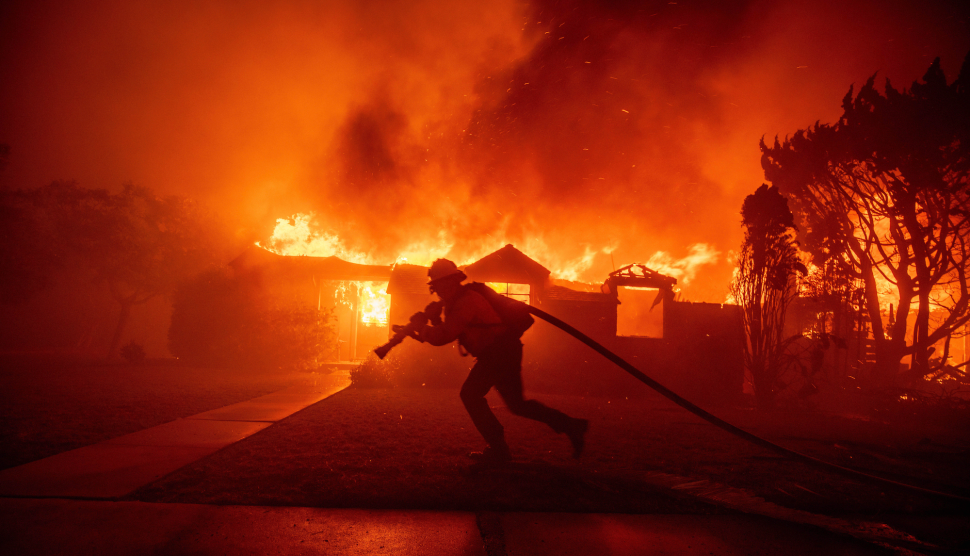
As General David Petraeus and U.S. Ambassador Ryan Crocker testify before Congress this week about the security situation in Iraq, telling the Senate Armed Services Committee on Tuesday that the surge is working and progress is under way, U.S. embassy officials in Baghdad have been ordered to take heightened security precautions in light of stepped-up attacks on the Green Zone, including one on Sunday that killed two U.S. soldiers and wounded 17 others.
Under this new security boost, says a U.S. Embassy official who asked not to be identified, embassy personnel have been told to remain under “hardened cover.” Instructed to avoid their trailers, some embassy staffers are now sleeping in reinforced buildings within the Green Zone, according to a source who has spoken with embassy officials in Baghdad. Embassy personnel have also been cautioned to limit their trips outdoors and, when they must leave the protection of reinforced structures, to wear flak jackets, protective eyewear, and helmets.
“This is the security posture as of right now,” the official says. “Due to the situation they’ve advised us to stay inside. At this time, the U.S. Embassy is taking precautions and taking hard cover.”
This is the second time in less than two weeks that insurgent rocket and mortar attacks on the Green Zone have forced the State Department to instruct its Baghdad personnel to adopt these measures. In late March, the embassy issued a “warden message” notifying U.S. citizens in Iraq that “until further notice, all personnel under the authority of the Chief of Mission are required to wear body armor, helmet and protective eyewear anytime they are outside of building structures in the International Zone” and were “advised to remain inside of hardened structures at all times, except for mission essential movements.” A separate memo sent by the State Department to embassy staff noted that these precautions were “due to the continuing threat of indirect fire in the International Zone.”
The warden message was issued as the Green Zone increasingly came under attack by insurgents, whose mortar and rocket fire killed two Americans, one a solider and the other a contractor, in late March. While the Green Zone has been a frequent target of insurgent assaults, attacks have escalated recently as Iraqi and U.S. forces launched a crackdown on Shiite militiamen loyal to Moqtada al-Sadr. “It’s like a light switch,” one Green Zone contractor told the Washington Post recently. “When Sadr gets pissed off, rockets rain in.”
During his testimony to the Senate Armed Services Committee, Petraeus said U.S. military forces in Iraq had taken control of a base in Sadr City, the Baghdad neighborhood where some of the mortar and rocket attacks on the Green Zone originated.
The embassy official says that security restrictions in the Green Zone had been eased since the March 27 warden message was issued, but were ramped up again on Tuesday. She declined to say how frequent heightened-security restrictions had become in the Green Zone, but similar precautions have been imposed in the past, including during a spike in violence last May. In September, after Blackwater contractors fired on civilians in Baghdad’s Nisour Square, the embassy issued a notice suspending “official U.S. government civilian ground movements outside the International Zone (IZ) and throughout Iraq.”
The heightened violence has clearly caused embassy personnel, no strangers to the sound of gunfire or nearby explosions, to take security steps that aren’t the norm in the Green Zone. “[We] don’t walk around in flak jackets every day,” the embassy official says.
Photo of U.S. Army soldier in Iraq in April from flickr user soldiersmediacenter used under a Creative Commons license.


